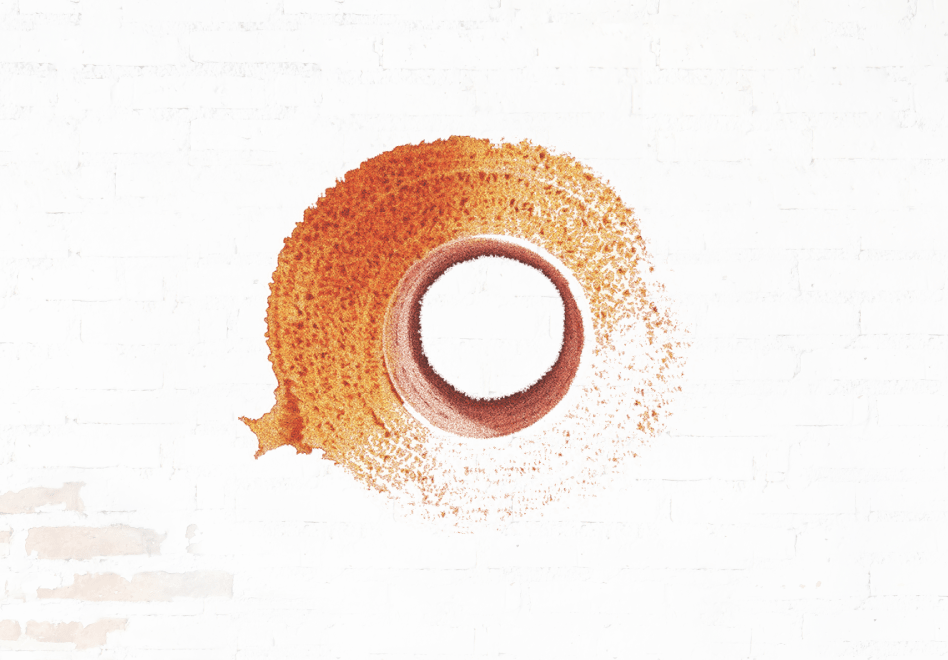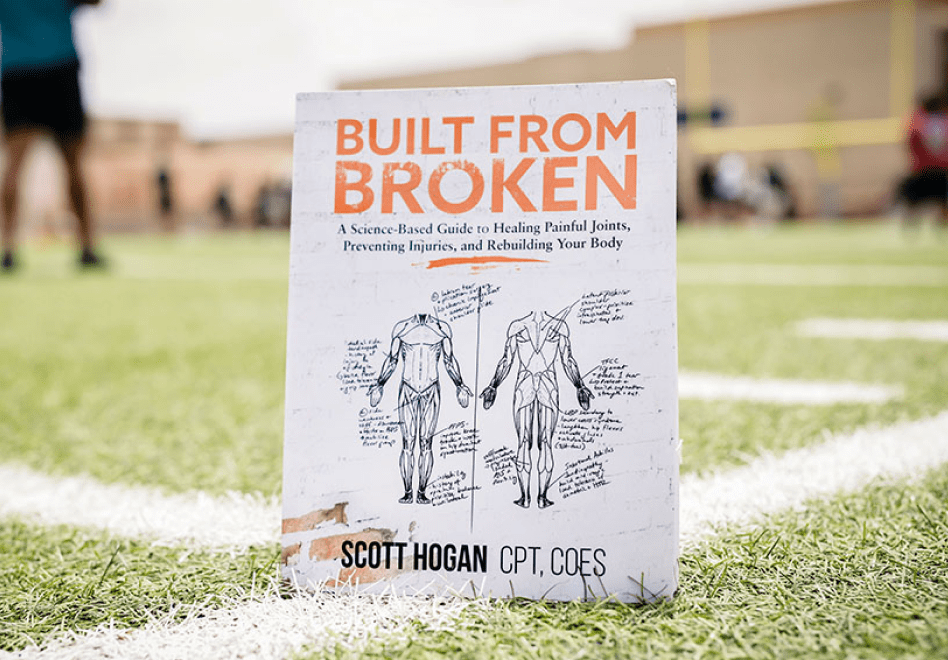
Be built (to last).
The right supplements can help you recover naturally and build a resilient body.

Supplement Quiz
Take this short quiz to discover the perfect supplements for your needs and goals.
About SaltWrap

Built from Broken
Get the best-selling book from SaltWrap founder, Scott Hogan, and start rebuilding today.
Postbiotics: The Next Generation of Gut Health Optimization
By Joe Zagami
Like most people, you’ve likely heard of probiotics. These helpful bacteria populate our gut and help it function at its best. Eating a probiotic-rich diet, according to experts, is key to a healthy gut.
Except that’s not the whole story.
A few years ago, prebiotics – food compounds that “fuel” probiotic bacteria – started to get mainstream attention. Conventional wisdom says a diet rich in prebiotics can help keep your gut healthy by feeding probiotics.
Most people were able to follow this line. If probiotic bacteria are alive, then they need to eat.
But there’s one critical piece of the equation that some experts left out – and others never knew about in the first place…
The only reason probiotics benefit our health in the first place is that they make postbiotics.

What Are Postbiotics?
In short, postbiotics are the health-boosting bioactive compounds that the good bacteria in your digestive tract make. They’re the desired payoff of having a healthy and balanced gut microbiome. Examples of postbiotics include certain short-chain fatty acids (SCFAs), enzymes, amino acids, vitamins, and even antimicrobial peptides.1
These all sound like good things that we need for optimal health. But how are postbiotics able to benefit our gut health – and beyond?
The (Many) Health Benefits of Postbiotics
Many scientists have devoted their careers to studying how any category of postbiotics mentioned above – SCFAs, vitamins, etc. – can help optimize our health.
There’s a lot we could cover.
But gut health optimization is where postbiotics shine.
Postbiotics and Gut Health
Postbiotics, especially SCFAs like butyrate, can help reduce inflammation in the gut and heal gut tissue. They can also help maintain a healthy metabolism and optimize nutrient absorption. Plus, the cells in your gut can use SCFAs for energy.
Another vital factor to consider is what we’ll call the “gut cycle.”
Having an abundance of “good” gut bacteria sets the stage for postbiotic production. And in turn, research shows that postbiotics – SCFAs in particular – can help prevent gut dysbiosis.4 This is an imbalance of gut bacteria characterized by a lack of “good” (probiotic) bacteria.
The more postbiotics your good gut bacteria can produce, the more – and better – good gut bacteria you’re likely to have. And that’s never a bad thing.
(However, it’s important to mention that the pendulum can also swing in the opposite direction.)
Better Health May Begin in the Gut Barrier
Gut health is about way more than digestion and trips to the bathroom. Those are important. But your gut - more specifically the gut barrier - is responsible for so much more:
-
About 70% of your immune forces are in your gut.2
-
The gut and the brain not only share a proven physiological connection but also have direct physical influences on one another.3 (Ever have a gut feeling?)
-
Plus, the gut is our first line of defense against virtually every exogenous input we encounter – including the air we breathe, the foods we eat, and everything in between.
This makes the gut barrier a critical line of defense for digestive health, immune support, and perhaps even mental well-being.
Postbiotics and Stubborn Digestive Symptoms
There are two main culprits when it comes to stubborn digestive symptoms: inflammation and physical damage to the gut lining cells. Not only do postbiotics help keep a handle on inflammation, but they can also support the structural integrity of the gut barrier.
The gut barrier is a three-tiered defense system that protects us against toxins, pathogens, and other external threats. This includes gut bacteria, immune forces, and the physical structures that help keep foreign invaders out.
Through supporting the gut barrier, postbiotics like SCFAs have been linked to reducing stubborn digestive issues like constipation and diarrhea.5
Postbiotics and Immune Health
This is where the true power of postbiotics is put on full display. Recall that 70% of the body’s immune forces reside in the gut. So, it should come as no surprise that postbiotics are critical not just for immune support, but also bolstering immune power.
Research shows that postbiotics stimulate both the innate (first line of defense) and adaptive (second line of defense) immune systems. This is in addition to helping maintain a strong gut barrier, which is at the front line of the body’s immune defense.
Great… But how can this translate to everyday life?
Some studies have shown that postbiotics can help with seasonal allergy symptoms like runny and stuffy nose. A small study also found that postbiotics helped to significantly reduce eczema symptoms in just three months.
Plus, postbiotics have also been shown to fight off invading microorganisms with unique antibiotic substances.6 It means that in addition to providing support, postbiotics can actively defend against outside threats to the body. Altogether, it’s not hard to see why doctors have said postbiotics have the potential to be “a new set of tools for the immune system.”
Postbiotics and Muscle Recovery
Researchers in India have linked certain postbiotic enzymes to improvements in delayed onset muscle soreness (DOMS) markers. Men who took these enzymes in supplement form had significantly less self-reported muscle pain and lower blood biomarkers of muscle damage – like creatine kinase and lactate dehydrogenase.7
This is important because DOMS can lead to muscle pain and stiffness that may affect athletic performance. And the faster you feel recovered, the faster you can get back in the game.
Plus, emerging research suggests that certain probiotics may help slow the loss of muscle strength after injury. It’s possible that postbiotics could play a role in this process via the “gut cycle” mentioned above. By supporting a healthy gut microbiome where good bacteria can thrive and work efficiently, postbiotics may help dial up the muscle-preserving power of probiotics.8
"Altogether, it’s not hard to see why doctors have said postbiotics have the potential to be 'a new set of tools for the immune system.'"
Are Postbiotics Better Than Probiotics?
Both probiotics and postbiotics are essential for optimal gut health. Plus, it’s not exactly an apples-to-apples comparison. Remember, postbiotics are the bioactive compounds made by good probiotic bacteria in the gut.
That said, research shows that the immune-supporting benefits of postbiotics are greater than those of probiotics.9 It means compounds like short-chain fatty acids likely do more to maintain – and perhaps even increase – immune power than the helpful probiotic bugs that produce them.
Once again, it’s critical to consider the “gut cycle.”
The role of probiotics is to create postbiotics. These helpful byproducts – not the bacteria in the gut – pass health benefits to people.
But what about people without enough – or the right balance of – probiotic bacteria? This is a situation where it’s good to put the cart before the horse. In other words, introducing exogenous postbiotics – and not relying on the existing bacteria in your gut to make them – might be the ideal way to “kickstart” a healthy gut.
So, what’s the best way to do this?
The Best Postbiotic Food Sources
Your first instinct may be to look to food as a natural postbiotic source. After all, there’s not exactly a shortage of probiotic-rich foods you can easily add to your diet.
But postbiotics are a different story.
Some foods can help ramp up your body’s natural postbiotic output. These include fermented foods like pickles, kefir, kimchi, and tempeh.
The problem is that they only support your probiotic bacteria’s ability to produce postbiotics as byproducts.
So, you can increase your postbiotic output with food. However, you’re only fueling your existing probiotic bacteria to help it work better. That’s not a bad thing... But you can do better.
When it comes to exogenous postbiotics, supplements reign supreme. And there are three specific types that you should look for.

The 3 Best Types of Postbiotic Supplements
Taking a postbiotic supplement is the express lane to optimizing gut health. Instead of waiting for prebiotics to fuel your probiotic bacteria so that they can make more postbiotics, you’re cutting out the middleman. It’s why postbiotic supplements can be the express lane to optimizing gut health.
But you must choose the right ones. Here are three of the best:
Butyrate
This short-chain fatty acid is almost single-handedly responsible for most of the postbiotic benefits you’ve read about. For instance, studies show that butyrate improves gut barrier function and bolsters its immune power. Plus, it may also help protect your brain and heart while also promoting better sleep.
Many supplements will use butyric acid and some form of salt to deliver the benefits of butyrate. The problem is that this approach has yet to be proven beneficial.10 But don’t worry, we’ll show you a better (and science-backed) way in a moment.
Yeast Fermentate
Quick history lesson. Back in the 1940s, a retired milling industry worker developed a special yeast-enriched food ingredient to give to livestock. This resulted in healthier animals. About 60 years later, an insurance adjuster noticed that employees at the production plant for this ingredient barely took any sick days. Since then, numerous studies have shown that this special form of fermented yeast has serious immune-boosting potential.11
Now, you can’t just grab the first baker’s yeast you come across. Only one specific type of yeast fermentate is backed by study after study. More on that in a moment.
Digestive Enzymes
You’ve likely heard about enzymes in the digestive tract that break down carbs, fats, and protein. These same enzymes can also help optimize nutrient absorption. That means better digestion and more health benefits from the foods you eat.
Unfortunately, many supplements get their enzymes from porcine and bovine sources. Other than the ethical concerns this may raise for some, it takes a lot of these animal-based enzymes to see meaningful benefits.
The solution? Use a microbe-based enzyme blend instead.
If you’re wondering where you might find something like that, don’t worry. We’ve tracked down the three best postbiotic supplement ingredients on the planet.
They’re not just cutting-edge breakthroughs. They’re backed by science – and real results.
The 3 Best Postbiotic Supplement Ingredients
Finding the best postbiotic supplement doesn’t have to be hard – if you know exactly what to look for. We suggest finding one that contains as many of these cutting-edge and science-backed ingredients as possible:
ImmunoLin®
This unique immunoglobulin protein isolate contains important bioactive peptides that help support optimal digestive and immune health. Research shows that it does this by binding to potentially harmful antigens in the digestive tract. But it doesn’t just hold onto them. It stops them from crossing the gut barrier and wreaking havoc in the body.
Plus, its bioactive peptides may help enhance recovery from strenuous exercise, making it an ideal choice for athletes or anyone leading an active lifestyle.
EpiCor®
This yeast fermentate postbiotic has more than a dozen published studies supporting its ability to support the immune system and optimize gut health. The proprietary fermentation process used to create EpiCor® makes it rich in bioactive compounds like beta-glucans and antioxidants that a healthy gut craves. This also helps explain its remarkable anti-inflammatory properties that can help put an end to stubborn digestive issues.
DigeZyme®
Digestive enzyme complexes are a dime a dozen nowadays. But study after study shows this patented postbiotic breakthrough is the real deal when it comes to gut health optimization. Research shows DigeZyme® can improve symptoms of indigestion. It can also help reduce pain and muscle soreness after exercise.
Plus, it’s shown to enhance the absorption of critical nutrients in the gut in as little as five days.
Putting It All Together
Just like with probiotics, it could take years for postbiotics – and the full extent of their unique health benefits – to go mainstream. (Consider yourself ahead of the curve if you’re reading this right now.) This makes finding a comprehensive postbiotic supplement difficult. Especially if you’re looking for one that contains all the science-backed postbiotic breakthroughs you just read about.
To be blunt, it didn’t exist until recently.
We developed Gut Clinic™ to be the most powerful all-in-one postbiotic solution available. And that’s precisely what we did.
Gut Clinic™ delivers clinical doses of ImmunoLin®, EpiCor®, and DigeZyme® for unmatched gut optimization support.
But we didn’t stop there. We also included Astragin® to support nutrient absorption and immune function in the gut.
Gut Clinic™ isn’t just the most comprehensive postbiotic supplement money can buy. It’s the next generation of gut health optimization.
Click the button below now to see why – and discover how to try Gut Clinic™ risk-free for 90 days.
-
https://www.health.harvard.edu/nutrition/what-are-postbiotics
-
Wiertsema, S.P.; van Bergenhenegouwen, J.; Garssen, J.; Knippels, L.M.J. The Interplay between the Gut Microbiome and the Immune System in the Context of Infectious Diseases throughout Life and the Role of 3.Nutrition in Optimizing Treatment Strategies. Nutrients 2021, 13, 886. https://doi.org/10.3390/nu13030886
-
https://www.health.harvard.edu/diseases-and-conditions/the-gut-brain-connection
-
Pedro Gonçalves, PhD, João Ricardo Araújo, PhD, James P Di Santo, MD, PhD, A Cross-Talk Between Microbiota-Derived Short-Chain Fatty Acids and the Host Mucosal Immune System Regulates Intestinal Homeostasis and Inflammatory Bowel Disease, Inflammatory Bowel Diseases, Volume 24, Issue 3, March 2018, Pages 558–572, https://doi.org/10.1093/ibd/izx029
-
Majeed M et al., “Multi-enzyme complex for the management of delayed onset muscle soreness after eccentric exercise: a randomized, double blind, placebo controlled study,” Sports Nutrition and Therapy.
-
Lee M-C, Ho C-S, Hsu Y-J, Huang C-C. Live and Heat-Killed Probiotic Lactobacillus paracasei PS23 Accelerated the Improvement and Recovery of Strength and Damage Biomarkers after Exercise-Induced Muscle Damage. Nutrients. 2022; 14(21):4563. https://doi.org/10.3390/nu14214563
Founder: Scott Hogan

I created SaltWrap to bring together the most practical ideas in therapeutic sports nutrition, corrective exercise, and functional fitness — with the goal of keeping you (and myself) strong, mobile, and built to last.
I've worked as an A.C.E. Certified Personal Trainer, Orthopedic Exercise Specialist, and nutritional supplement formulator.
But more importantly — I've spent most of my life battling injuries, joint pain, and just being plain beat up. So I know what it's like to struggle toward fitness goals.
SaltWrap is here to push you through injuries, setbacks and perceived physical limitations. To a place beyond what you think you're capable of. Sign up here to stay in the loop.
Learn more about my best-selling injury prevention and recovery book, Built from Broken.







